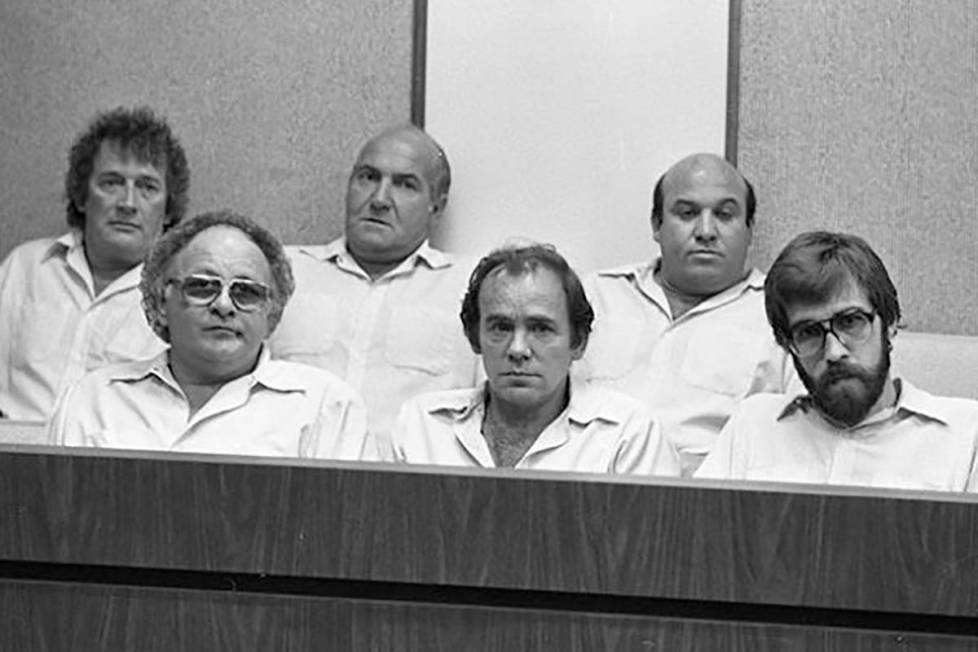‘Mobbed Up’ podcast: ‘Hole in the Wall — Part 7’

Frank Cullotta estimates his crew burglarized 250, maybe 300 homes in Las Vegas by 1981.
He says he assembled that crew, dubbed the “Hole in the Wall Gang,” a few years earlier on orders from his childhood friend and reputed Las Vegas mob enforcer Tony Spilotro.
Spilotro had moved from Chicago to Las Vegas in 1971, allegedly to control street rackets and help oversee casino skimming operations for the Chicago Outfit. Cullotta followed Spilotro to Vegas in 1978.
“He says, ‘I need you to get some guys,’ ” Cullotta remembers Spilotro telling him when he arrived in the city. “So that’s when I formed a crew of guys.”
The crew earned its “Hole in the Wall” nickname by busting holes in walls and roofs to gain entry into homes and businesses without tripping alarms. Such was the plan in the summer of 1981 when the crew looked to execute its most ambitious score to date: a potential million-dollar burglary at a home furnishings store called Bertha’s.
They planned the burglary for July 4, 1981. Why Fourth of July?
This was the end of organized crime in Las Vegas.
Frank Cullotta
“It’s a busy time in Las Vegas; everybody’s on the Strip,” Cullotta says, thinking back on the plan. “All Metro is down there. Firecrackers, noise, everything. It was all working for us.”
However, there were a few surprises in store for Cullotta and his crew that evening.
Reflecting on that night and knowing what would come next, Cullotta reckons, “This was the end of organized crime in Las Vegas.”
‘Mobbed Up — Part 7: “Hole in the Wall” ’
Part 7 of “Mobbed Up” follows Frank Cullotta from Chicago to Las Vegas, where he serves as a trusted lieutenant of Tony Spilotro.
The episode takes listeners through the late 1970s into the early 1980s, ending with the scene of the planned burglary at Bertha’s.
Where and how to listen
“Mobbed Up: The Fight for Las Vegas” is available for free on all major podcasting platforms, including Apple Podcasts, Spotify, Google Podcasts and more.
Search for “Mobbed Up” on your preferred mobile podcasting app and tap “subscribe” or “follow,” or click here to listen to the series on the Review-Journal website.